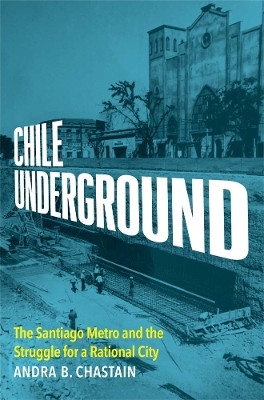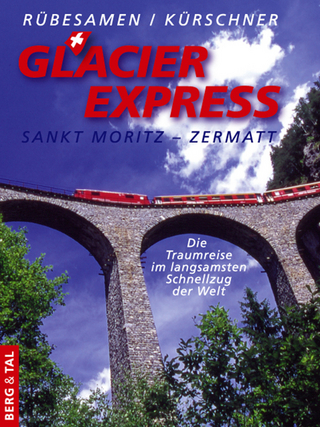
Chile Underground
The Santiago Metro and the Struggle for a Rational City
Seiten
2025
Yale University Press (Verlag)
978-0-300-25355-9 (ISBN)
Yale University Press (Verlag)
978-0-300-25355-9 (ISBN)
- Noch nicht erschienen (ca. Januar 2025)
- Versandkostenfrei innerhalb Deutschlands
- Auch auf Rechnung
- Verfügbarkeit in der Filiale vor Ort prüfen
- Artikel merken
A fascinating historical examination of the Santiago Metro system as a microcosm of Chilean national identity during the twentieth century
The Santiago Metro, the largest urban infrastructure project in Chile’s history, was designed in the 1960s in response to rapid urban growth. Despite the upheavals of Salvador Allende’s democratic socialism (1970–1973) and Augusto Pinochet’s military dictatorship (1973–1990), the project survived and is now the largest metro system in South America. What explains its success? How did its meaning shift under democracy and dictatorship? What does its history reveal about struggles for a more just city?
Drawing on Chilean and French archives, Andra B. Chastain demonstrates that Chilean-French relations and French financing were crucial to the project’s survival during the Cold War. The Metro’s history also illuminates the contested process of implementing neoliberalism and the unexpected continuities of state planning and visions for a rational city that persisted despite free-market reforms. Most important, this story shows that the Metro came to symbolize the nation and became a critical site where planners, workers, and urban residents contested Chile’s path to modernity.
The Santiago Metro, the largest urban infrastructure project in Chile’s history, was designed in the 1960s in response to rapid urban growth. Despite the upheavals of Salvador Allende’s democratic socialism (1970–1973) and Augusto Pinochet’s military dictatorship (1973–1990), the project survived and is now the largest metro system in South America. What explains its success? How did its meaning shift under democracy and dictatorship? What does its history reveal about struggles for a more just city?
Drawing on Chilean and French archives, Andra B. Chastain demonstrates that Chilean-French relations and French financing were crucial to the project’s survival during the Cold War. The Metro’s history also illuminates the contested process of implementing neoliberalism and the unexpected continuities of state planning and visions for a rational city that persisted despite free-market reforms. Most important, this story shows that the Metro came to symbolize the nation and became a critical site where planners, workers, and urban residents contested Chile’s path to modernity.
Andra B. Chastain is assistant professor of history at Washington State University Vancouver. She is the co-editor, with Timothy W. Lorek, of Itineraries of Expertise: Science, Technology, and the Environment in Latin America’s Long Cold War.
| Erscheint lt. Verlag | 28.1.2025 |
|---|---|
| Zusatzinfo | 17 b-w illus. |
| Sprache | englisch |
| Maße | 156 x 235 mm |
| Themenwelt | Natur / Technik ► Fahrzeuge / Flugzeuge / Schiffe ► Schienenfahrzeuge |
| Geisteswissenschaften ► Geschichte ► Regional- / Ländergeschichte | |
| Geschichte ► Teilgebiete der Geschichte ► Technikgeschichte | |
| ISBN-10 | 0-300-25355-9 / 0300253559 |
| ISBN-13 | 978-0-300-25355-9 / 9780300253559 |
| Zustand | Neuware |
| Haben Sie eine Frage zum Produkt? |
Mehr entdecken
aus dem Bereich
aus dem Bereich
die Rhätische Bahn schreibt Geschichte
Buch | Hardcover (2023)
Edition Somedia (Verlag)
59,00 €
St. Moritz – Zermatt : die Traumreise im langsamsten Schnellzug der …
Buch | Hardcover (2023)
Verlag Berg & Tal
14,95 €
Betriebsmaschinendienst, Einsatz bei den Bahnbetriebswerken und …
Buch | Hardcover (2024)
EK-Verlag
54,00 €


